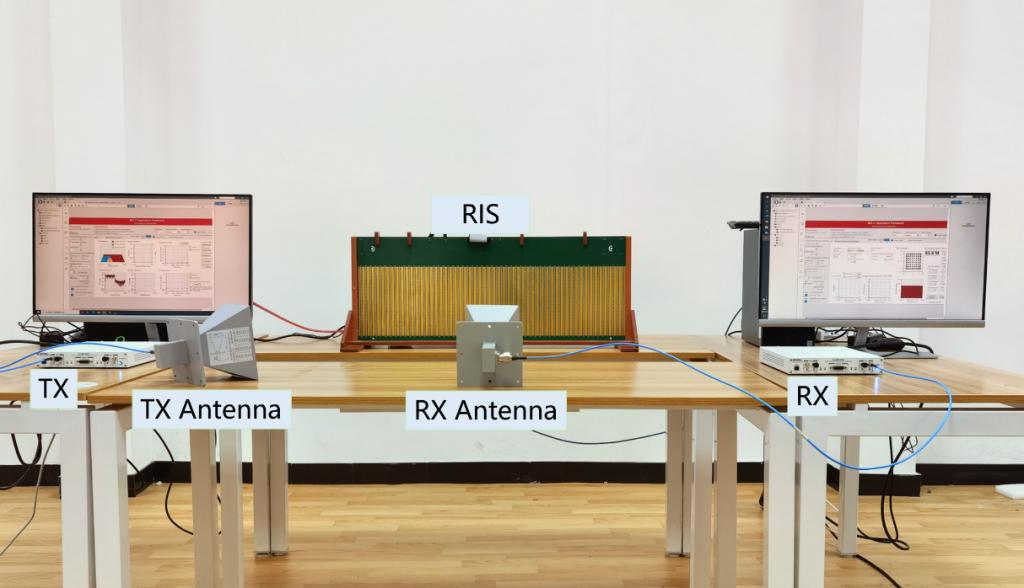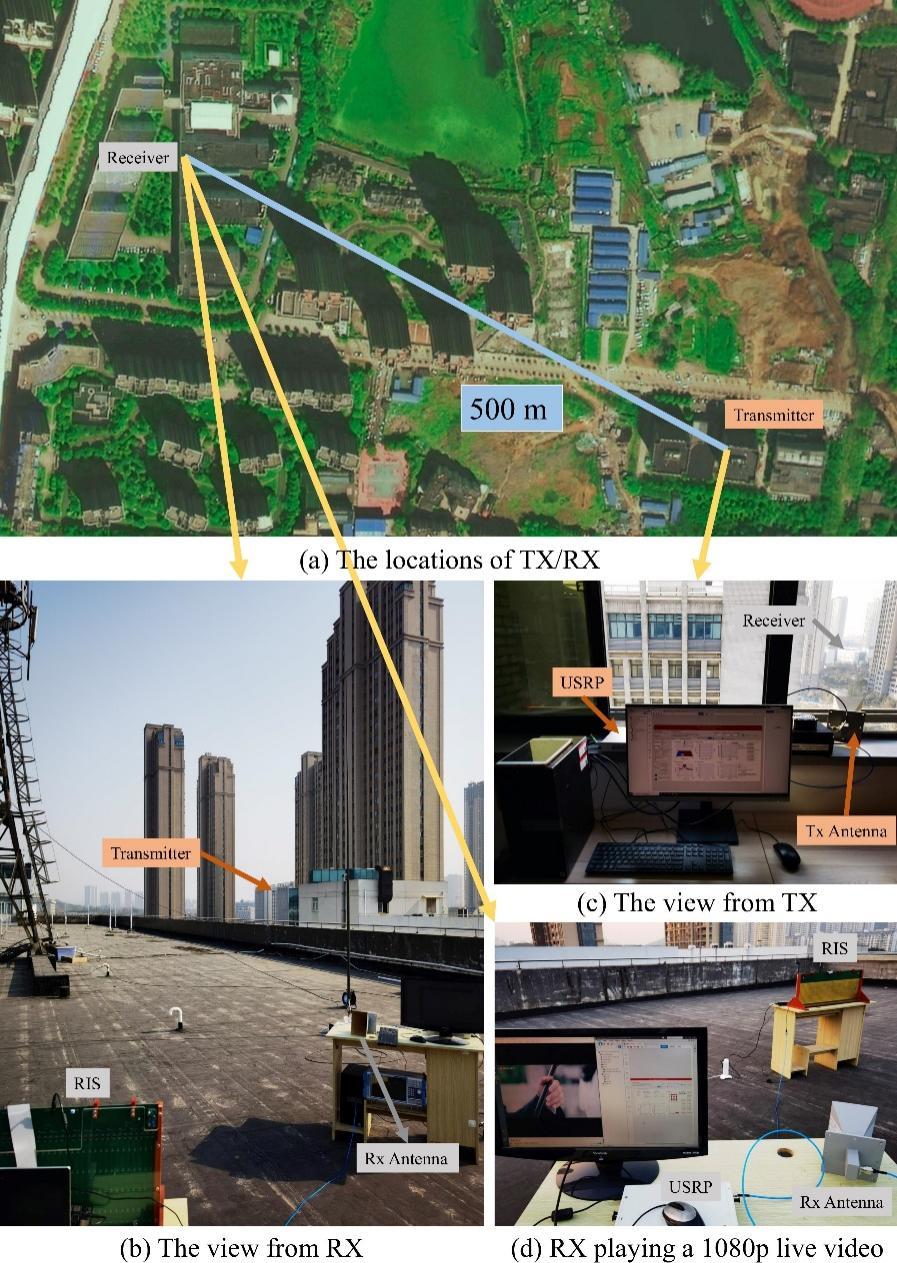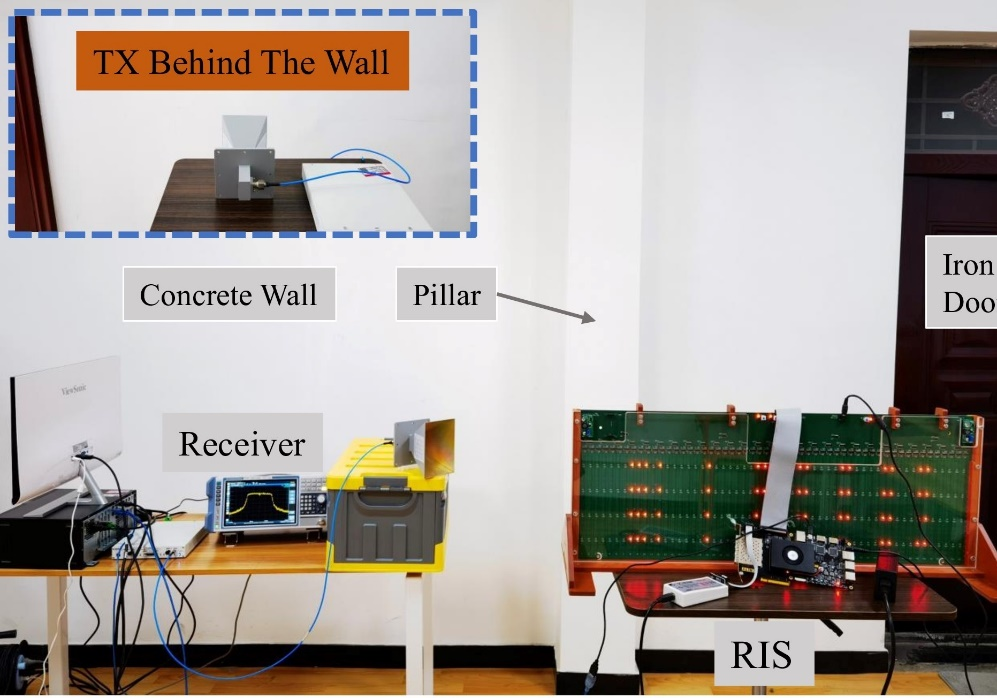Recently, the wireless communication prototype system with reconfigurable intelligent surface developed by the research team of Professor Haifan Yin from the School of Electronic Information and Communications successfully broke the record of this field. The received signals were amplified by 500 times without any change of the transmit power. The team accomplished the world’s first outdoor long-distance signal transmission experiment of the reconfigurable intelligent surface. The loss of signal strength after long-distance transmission was compensated by this technology, and the real-time playing of a High Definition video 500 meters away was achieved in the experiment.
The working frequencies of mobile communication systems are going higher and higher due to the scarcity of wireless spectrum. The problems of limited network coverage and high energy consumption are getting more serious, which obstruct the development of mobile communication industry. Reconfigurable Intelligent Surface (RIS) is a new technology that is expected to have the potential to solve these two problems. The technology is a cutting-edge inter-discipline based on artificial electromagnetic metamaterials and modern mobile communications. The phase/amplitude responses of the electromagnetic reflection elements on the surface are software-controllable. By coordinated control of the reflection elements, one may manipulate the incident wireless signal on the surface and intelligently reflect the signal to the mobile users. The technology may lead to significant improvement of the signal quality and the reliability of communications, solve the coverage holes of the network, and reduce the energy consumption of communication networks. Meanwhile, it also has the advantages of low cost, low power-consumption, and easy to deploy. It is therefore expected to be one of the key technologies for 5G+/6G. The international competition is extremely intense in this research area. Scientists from many countries and regions, such as China, the U. S., Europe, Japan, Korea and Singapore, are all accelerating their exploration of this new technology.
Professor Haifan Yin and his team has successively built a prototype of RIS-based communication system, after solving many difficulties, which include the design and fabrication of electromagnetic metamaterials, the development of high frequency circuits, as well as the programming of the software defined radio system. A low-complexity adaptive beamforming technology based on the sparse structure of wireless channels is also put forward, which can precisely direct the reflected signal to the receive antenna and therefore improve the strength of received signals. The team took the lead to accomplish the first outdoor long-distance signal transmission experiment with the reconfigurable intelligent surface. It achieved a power boost of 500 times for the received signal, which broke the record kept by the team from Tsinghua University that the signals were amplified by 150 times.
Team |
MIT |
Tsinghua University |
Huazhong University of Science and Technology |
Power Gain |
10.5-fold |
150-fold |
500-fold
|

The reconfigurable intelligent surface-based wireless communication prototype developed by the team

Outdoor experiment
The team transmitted a 1080p HD live video wirelessly from the Liangsheng Building of Qiming College to the former site of Wuhan National Laboratory for Optoelectronics. The signals at the receiver side were amplified with the help of the reconfigurable intelligent surface, and the real-time playing of HD videos was made possible.

The test of signal transmission through the wall
In the test of transmitting signals through the wall, the reconfigurable intelligent surface also amplified the power of signals by 400 times, which considerably compensated the penetration loss and ensured the quality of communication. These field experiments show the great potential of reconfigurable intelligent surface to solve the problems of 5G and beyond - the network coverage and high power consumption.
The team has filed seven national patents of invention, four of which have been officially authorized. The team members also include Lecturer Li Tan, and five students: Xilong Pei, Lin Cao, Zhanpeng Li, Kai Wang, and Kun Zhang.

Haifan Yin is an overseas high-level talent expert of the School of Electronic Information and Communications. Previously he worked as a senior Research and Development Engineer at Huawei, and participated in the standardizations of 5G. Haifan Yin has long been engaged in the researches of wireless communication and multiple-antenna technology. He has also solved several challenges faced by Massive MIMO - a key technology of 5G, and made great contributions to its commercialization.

